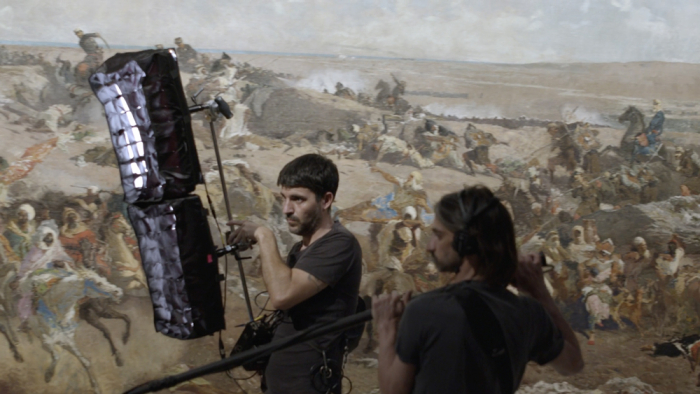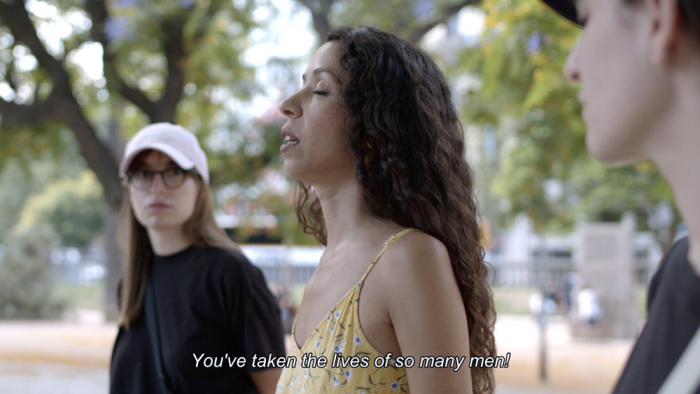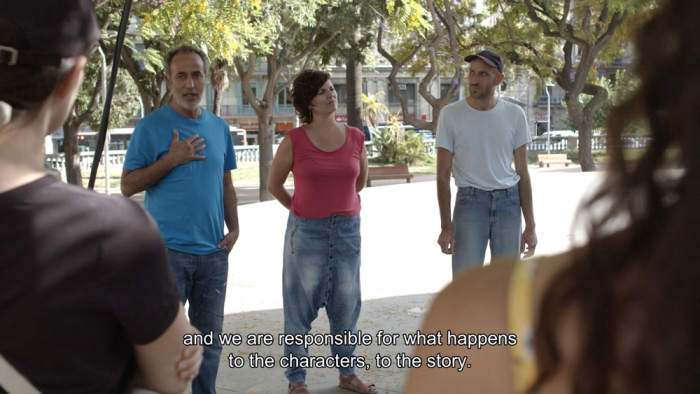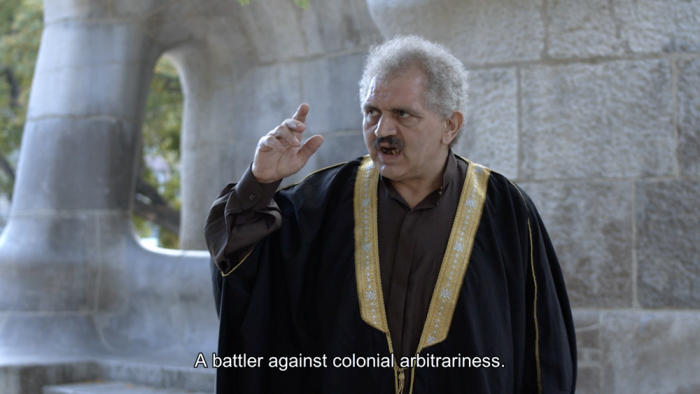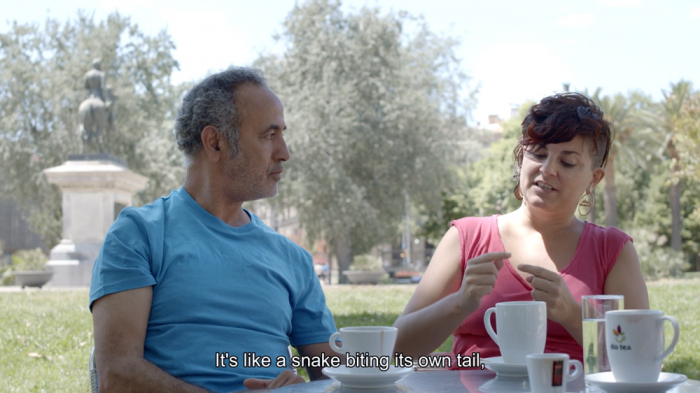Tetuan, Tetuán, Titwan (Chapter 1)
2K two-channel video, 33 min, 2021
In collaboration with Salma Amzian, Ali el Aziz, Rita El Jebari,
Abdel Aziz El Mountassir and Itzea Goikolea-Amiano
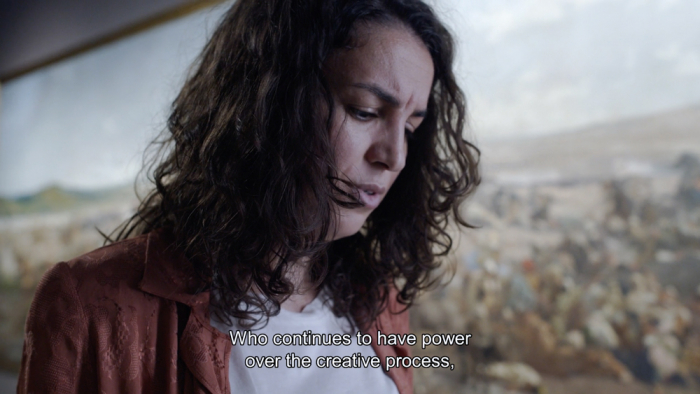
The film trilogy "Tetuan, Tetuán, Titwan" deals with Spain's colonial past in Morocco and the traces it has left in Spanish society through an experimental collaborative methodology, examining both cultural production and public space as well as the collective imaginary. Developed in three cities in dialogue with Moroccan and Spanish cultural agents, each of the three chapters explores narrative strategies to resignify places such as the Plaça Tetuan in Barcelona, the neighborhood of Tetuán de las Victorias in Madrid or the Teatro Cine “Español” in the city of Tétouan, Morocco. Punctuated by readings, songs, informal conversations and fictional scenes at the foot of monuments, in cafés, streets and museums, it upholds the idea that orality can offer resistance to hegemonic discourses and favors the emergence of other imaginaries.
The first chapter of the trilogy (Barcelona) focuses on the implication of representation in power relations and the persistence of colonial iconography in current audiovisual production. Close to monuments, two actors, a singer and a researcher share their experiences with cinema and television over coffee. An activist wanders through the Orientalist rooms of the Museu Nacional d'Art de Catalunya, questioning the distribution of roles and the mechanisms of film itself. And a hlaiqui (storyteller) gathers the team in Plaça Tetuan and recounts the legendary trajectories of two Moroccan women who confronted the colonists and their vassals, breaking with stereotypes and canonical narratives.
Production: Lejos lejos and Anna Manubens
Cinematography: Sara Gallego and Pablo Paloma
Sound: Hamid E. Martín
Assistant director: Elisa Celda
Production manager: Andrea Celda
Editing: Caterina Monzani
Color: Clara Rus
Gaffer: Bruno Carbonetto
Still photography: Heidi Ramírez
Texts: Salma Amzian, Hada El Ghiatia (Kharboucha),
Juan Goytisolo and Abdel Aziz El Mountassir
Produced with the support of Departament de Cultura - Generalitat de Catalunya, Casa de Velázquez, MACBA and CNAP, and the collaboration of 2deo laboratorio audiovisual de Tabakalera.
